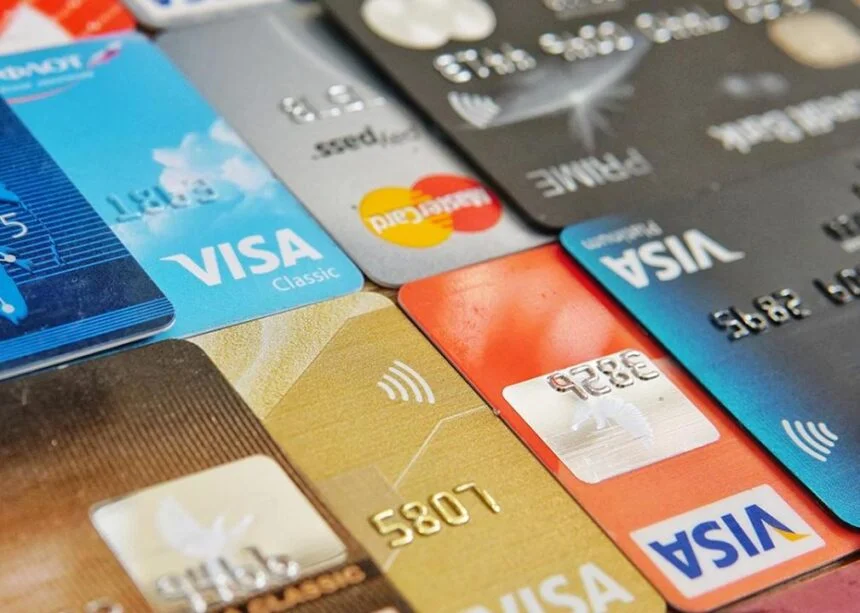Credit cards are ubiquitous in the United States, playing a significant role in the daily lives of millions of Americans. However, amidst their widespread use, various myths and misconceptions surround these financial tools. Misunderstanding credit cards can lead to financial mistakes, poor credit management, and even missed opportunities to take advantage of their benefits.
Anúncios
In this comprehensive exploration, we delve into the truths and debunk the myths surrounding credit cards in the USA. From their inception to their impact on personal finance, we aim to provide clarity on this essential aspect of American financial culture. Understanding how credit cards work can help individuals make informed decisions, improve their financial health, and avoid common pitfalls.
The birth and evolution of Credit Cards

Credit cards have a rich history, dating back to the early 20th century. Initially, they were issued by individual stores and oil companies for customer convenience. However, it wasn’t until the introduction of the first universal credit card, the Diners Club Card, in the 1950s that the modern concept of credit cards began to take shape. Over time, credit cards evolved from simple store-issued cards to a sophisticated financial tool that plays a central role in global commerce.
1. The Emergence of Universal Credit Cards
The Diners Club Card revolutionized the way Americans made purchases, offering a single card accepted at various establishments. This innovation laid the foundation for the credit card industry as we know it today. Soon after, major financial institutions saw the potential in universal credit cards, leading to the creation of widely accepted cards such as American Express and later Visa and Mastercard.
2. Evolution of Payment Networks
Over the decades, payment networks such as Visa, Mastercard, American Express, and Discover emerged, further expanding the reach and functionality of credit cards. These networks facilitated seamless transactions across a vast array of businesses, both domestically and internationally. Today, these networks process billions of transactions daily, providing consumers with unmatched convenience and financial flexibility.
3. Technological Advancements
From magnetic stripes to EMV chips and contactless payments, credit card technology has continuously evolved to enhance security and convenience for consumers. Recent innovations include virtual cards, biometric authentication, and tokenization, all of which aim to reduce fraud risks and make transactions safer. Contactless payments, in particular, have gained popularity due to their speed and hygiene benefits, especially in a post-pandemic world.
Common Myths Surrounding Credit Cards
Despite their prevalence, credit cards are often shrouded in myths and misunderstandings. Let’s debunk some of the most common misconceptions:
1. “Credit Cards Always Lead to Debt”
One of the biggest misconceptions about credit cards is that they inevitably lead to debt. While it’s true that misusing credit cards can result in financial problems, responsible use can actually improve your credit score and overall financial health. Paying balances in full each month, keeping credit utilization low, and making on-time payments are key strategies to avoid debt while benefiting from credit card perks.
2. “You Need a High Income to Qualify”
Many people assume that only high-income individuals can get approved for credit cards, but this is far from the truth. While income can be a factor in credit card approval, many cards cater to individuals with varying income levels, including students and those with limited credit history. Secured credit cards and entry-level credit cards provide opportunities for beginners to build credit without requiring high salaries.
3. “You Should Carry a Balance to Improve Your Credit Score”
A widespread myth suggests that keeping a balance on your credit card will improve your credit score. In reality, carrying a balance does not positively impact your credit score and may lead to unnecessary interest charges. Instead, paying your balance in full each month is the best way to maintain good credit while avoiding costly interest fees.
4. “Credit Cards Are Unsafe”
Some people believe that using credit cards increases their risk of fraud and financial loss. However, credit cards actually offer some of the strongest consumer protections available. With robust security features such as fraud monitoring, zero liability protection, and encryption technology, credit cards are often safer than other forms of payment like cash or debit cards. Additionally, cardholders have the right to dispute unauthorized transactions, providing an extra layer of security.
5. “Applying for a Credit Card Always Lowers Your Credit Score”
It is true that applying for a new credit card results in a hard inquiry on your credit report, which may cause a slight dip in your credit score. However, this impact is usually minor and temporary. In the long run, having additional credit can actually improve your credit utilization ratio, a key factor in your credit score.
The Benefits of Using Credit Cards Wisely
When used responsibly, credit cards offer a wide array of benefits beyond mere convenience:
1. Building Credit History
A credit card is one of the most effective tools for establishing and building a positive credit history. A strong credit history is crucial for obtaining loans, mortgages, and favorable interest rates. Responsible credit usage demonstrates financial reliability to lenders, increasing your chances of securing better financial opportunities.
2. Rewards and Perks
Many credit cards offer rewards programs that allow cardholders to earn cash back, travel miles, or points on their purchases. These rewards can add significant value over time, making everyday spending more beneficial. Additionally, perks such as extended warranties, purchase protection, airport lounge access, and travel insurance enhance the overall benefits of using credit cards.
3. Consumer Protections
Credit cards provide consumers with important protections against fraud, theft, and unauthorized charges. Federal laws such as the Truth in Lending Act (TILA) and the Fair Credit Billing Act (FCBA) ensure that credit card users have the right to dispute fraudulent transactions and billing errors. Unlike debit cards, which may leave you financially liable if funds are stolen, credit cards provide additional security through fraud prevention policies.
4. Emergency Fund
Having access to a credit card can be a valuable safety net in times of financial emergency. Whether it’s a medical expense, urgent car repair, or travel emergency, a credit card allows individuals to cover unexpected costs without resorting to high-interest payday loans or depleting their savings.
5. Convenience and Global Acceptance
Credit cards provide unmatched convenience, allowing users to make transactions worldwide without the need for cash. They are widely accepted in physical stores, online marketplaces, and even for subscription services. Furthermore, they enable seamless international transactions without requiring currency exchanges, making them an essential tool for travelers.
Conclusion
Credit cards have become an integral part of American financial culture, offering convenience, security, and financial flexibility. Despite their ubiquity, they are often misunderstood due to myths and misconceptions. By debunking these myths and understanding the true benefits of credit card usage, individuals can make informed financial decisions that align with their goals.
Responsible credit card management empowers users to build strong credit histories, take advantage of valuable rewards, and maintain financial security. Whether used for everyday purchases, travel benefits, or emergency funds, credit cards can be a powerful financial tool when handled wisely.
Ultimately, credit cards are not inherently dangerous financial tools; rather, their impact depends on how they are used. With the right knowledge and habits, individuals can maximize the benefits of credit cards while avoiding potential pitfalls, ensuring long-term financial health and stability.of Americans, empowering them to navigate the complexities of modern finance with confidence and resilience.






